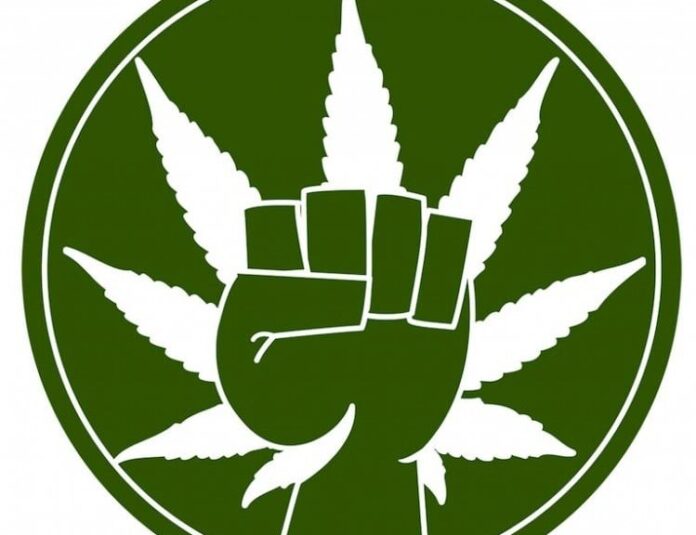Should we legalise the recreational use of cannabis? Yes – because let’s be clear: the ‘war on drugs’ is a class and race war masquerading as a crusade to shield young people from harm.
The fact is Kiwis do and will use drugs at some stage in their lives – one British Medical Journal study found New Zealand and Australia had the highest rate of cannabis, meth and ecstasy use in the world. But while Pākehā and Māori use cannabis at the same rates, it’s Māori who face the toughest penalties for doing so.
This referendum is not about celebrating drug use; it’s about reversing the ‘punishment first, rehab second (or never)” mentality that disproportionately affects young working-class Māori. Without this urgent reform, we will continue to destroy lives over a drug that is relatively safe for personal use and whose wider impact is nothing compared to the social harm caused by alcohol.
Already heavily disadvantaged in housing, employment, health and education stats – and vastly overrepresented in our jails – tangata whenua are being criminalised for the possession and use of a drug that is scientifically proven to be safer than both smoking and alcohol. Ministry of Justice figures show that between 2007 and 2014, 16,729 young people between 17 and 25 were convicted of possession and/or use of an illicit drug or drug utensil.
But despite Māori making up 15% of the population, they made up 37% percent of those convicted of this relatively minor offence.
Legalising possession would also no longer give police an excuse to search people, cars and homes – which would restore mana and make a huge difference to Māori communities. The class bias is clear. How often do we see champagne-swilling corporate bosses or race-goers being wrestled to the ground and handcuffed, or having their multi-million-dollar homes raided on suspicion of cocaine possession? It’s the working poor who suffer disproportionately from discriminatory police practices.
The cost of making cannabis illegal is colossal. From 2007-2011, New Zealand spent more than $59 million imprisoning those who are convicted of minor drug offences and have to serve custodial sentences. This does not include costs to police, the courts, treatment or probation. This hard-earned taxpayer money could be far better spent providing rehabilitation for the seriously drug addicted – not to mention addressing social inequalities that make dependence on drugs of all kinds – most infinitely more dangerous than cannabis – both understandable and inevitable.
In an interview with The Spinoff, one mum and grandmother told how a brutal past of domestic violence made her turn to drugs as an escape from the painful reality of her life. After multiple stints in jail, she wondered how different her life might have been had she been offered treatment rather than incarceration.
She said that without drug law reform so many others, especially young wahine Māori, will get stuck in the same harmful cycles of trauma, drug use and prison. “There’s a whakapapa, a history to why people end up using drugs and end up in the justice system.”
Like any drug, cannabis can be harmful if used excessively. But studies have shown it is still far safer than alcohol, tobacco and multiple other illicit substances – not to mention the proven medicinal pain-relieving benefits for those with chronic or terminal illnesses.
One study published in Scientific Reports in 2015 compared the lethality of the recreational use of 10 common drugs, including marijuana, alcohol, tobacco, heroin, cocaine, ecstasy, methamphetamine, diazepam, amphetamine and methadone. They found marijuana had the lowest risk of mortality and was safer than every other drug in the study. And a legal drug that is monitored for quality is far safer than the current black market alternatives which are untested, unlabelled, of unknown provenance and with no information as to what they contain.
This is not to say that addiction and over-use don’t or won’t occur. But throwing users into jail merely perpetuates a cycle of addiction and alienation, and is more likely to drive desperate and marginalised youth into harder drug use and further crime.
If cannabis were legalised, the New Zealand industry could employ about 5000 people and reap almost $1.1 billion in taxes a year, two in-depth reports by Business and Economic Research Ltd have shown.
But even with a ‘yes’ vote, our campaign shouldn’t stop there. Because we need to ensure any financial benefits of legalising cannabis go towards building and improving our communities, and not into corporate coffers.
It’s crucial that a) taxes from cannabis sales be poured back into rehabilitation and addressing social inequalities, particularly among disadvantaged groups like Māori b) government enforces tight rules to ensure big business is not allowed to reap huge shareholder profits from the drug.
Maria Hoyle is a freelance journalist and a member of Socialist Aotearoa.






Couldn’t agree more – outstanding article!
Well if the people don’t go out and vote for it, we are not going to get it.
Jacinda won’t do anything for this unless we get a majority in the Yes camp, so it will be dropped like a cold cup of sick = /
I voted Yes, if you want this you need to also!
Those who think that our revulsion at the damage that cannabis, alcohol, tobacco and other drugs are doing to our people is part and parcel of a “race war” are, it seems, intent on creating a situation where those nasty Maori gangs can be booted out of the trade to make room for nice Europeans in suits who work for capitalist corporations, and on the side will bring in a billion dollars in new taxes for the capitalist state.
Actually, Maria, the drug corporations that you are promoting will be even more damaging than the gangs, and they will have the full power of the colonial state behind them. But legalisation will have one positive effect. It will tell our people that they must stand alone. They cannot trust the colonial regime or its socialist friends to provide for their well-being or to manage any aspect of their social life in good faith. This is they way in which the struggle against colonialism and capitalism will be won – by our people themselves.
at the moment what tax is ring fenced tobe spent on the area where the tax is drawn from . The tax money taken off motorists and truckers is not spent on the roads otherwise they would not be in such a poor state. Far more money is taken from tobacco smokers than is spent on their care or programmes to help them quit. I see it as an excuse for decriminalization to say how much it will earn the country in tax. It is similar to those that applaud pokie machines that take so much from the poor but then give a small amount to the local sports club to make them seem a good idea. It is all smoking mirrors.
Looks like most Maori and Pasifika have common sense views on both cannabis and euthanasia
They oppose the legalisation of both.
To think that any group of people would be uplifted by the legalisation of drugs is simply outrageous.
https://www.rnz.co.nz/news/political/428479/south-auckland-maori-and-pasifika-oppose-both-referendums-poll-shows
It is comforting that Maori and Pasifika think likewise. Hopefully this rubbish referendum will be heavily defeated by all right thinking people
Comments are closed.